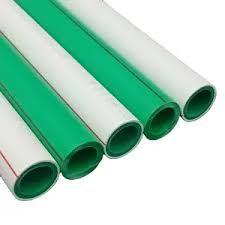Oct . 10, 2024 06:36 Back to list
Comparison of Wholesale PVC Pipe and PPR Pipe for Construction Needs
Wholesale PVC Pipe vs. PPR Pipe A Comparative Analysis
When it comes to plumbing and construction projects, pipes are essential components that require careful selection based on their material properties and intended use. Two popular types of pipes in the market today are PVC (Polyvinyl Chloride) and PPR (Polypropylene Random Copolymer) pipes. Understanding their differences can assist wholesalers and contractors in making informed decisions.
Durability and Longevity
PVC pipes are well-known for their durability and resistance to corrosion, making them suitable for various applications, including drainage and irrigation systems. They can withstand harsh weather conditions and have a lifespan of up to 50 years. However, PVC is prone to cracking under extreme temperature fluctuations. On the other hand, PPR pipes are highly resistant to impact and are less likely to suffer from thermal expansion or contraction. They can handle a wider range of temperatures, making them an excellent choice for hot and cold water systems.
Installation and Maintenance
One of the significant benefits of PVC pipes is their ease of installation. They can be cut and joined using solvent cement, requiring less specialized equipment. This can lead to reduced labor costs, which is attractive for wholesalers and contractors alike. PPR pipes, while also relatively easy to install, require a fusion welding method for joints, which means that specialized tools and training may be necessary. This can increase upfront costs but offers superior joint integrity and leak prevention over time.
wholesale pvc pipe vs ppr pipe

Cost-Effectiveness
In terms of cost, PVC pipes generally have a lower initial purchase price compared to PPR pipes, which can make them the preferred choice for budget-conscious projects. However, it’s essential to consider the total cost of ownership. While PPR pipes may be more expensive upfront, their longevity and lower maintenance costs can make them more economical in the long run. Wholesale buyers should evaluate their specific project requirements and budget constraints to determine the most cost-effective option.
Environmental Impact
Both PVC and PPR pipes have environmental considerations. PVC production involves the use of chlorine, which raises concerns about environmental sustainability. Conversely, PPR pipes are considered more environmentally friendly, as they are 100% recyclable and do not release harmful chemicals during production or use.
Conclusion
Choosing between wholesale PVC and PPR pipes depends on various factors such as project requirements, budget, and long-term benefits. Each material has its strengths and weaknesses, and understanding these can help wholesalers, contractors, and consumers make the best choice for their plumbing needs. Whether prioritizing cost, durability, or environmental impact, both options serve crucial roles in the construction industry.
-
DN100 PVC Well Casing Pipes | Durable Corrosion-Proof
NewsAug.04,2025
-
HORON 25mm PPR Plumbing Pipes - AI-Enhanced & Reliable
NewsAug.03,2025
-
HORON 25mm PPR Pipes - AI-Optimized Plumbing Excellence
NewsAug.02,2025
-
Premier HDPE Sprinkler Pipe Manufacturers | Durable Solutions
NewsAug.01,2025
-
DN500 HDPE Double Wall Corrugated Drain Pipes | Durable & Efficient
NewsJul.31,2025
-
1/2' PVC Electric Protective Pipe - Durable, Lightweight Conduit
NewsJul.31,2025

